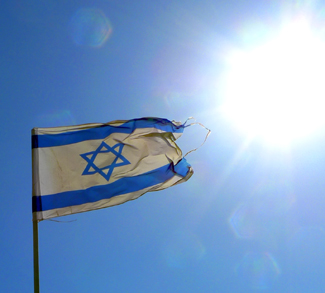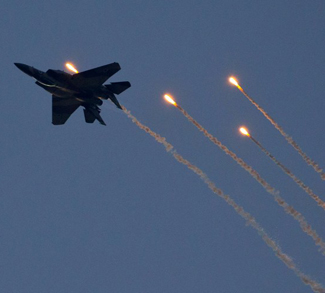Summary
Israeli and Palestinian power players on both sides of the border calculated that a war would increase their chances of electoral victory, scheduled for early 2009.
Analysis
Why then, did Israel launch a war against the Gaza Strip? To understand why, we must analyze the objectives of each of the players involved.
Israel
After the resignation of current Israeli Prime Minister Ehud Olmert, Foreign Minister Tzipi Livni was elected by Kadima, the ruling party, as new Prime Minister designate. However, Livni was unable to hold together the ruling coalition with Shas, an ultra-orthodox Jewish religious party that backed out in protest over Livni’s agreement to the Palestinians demand of control over the Israeli capital, East Jerusalem. The resultant collapse of the Israeli government triggered elections scheduled by President Shimon Peres for early February.
However, since the collapse of Kadima’s coalition, polls have indicated a rise in popularity for the hawkish Likud party, led by former Primer Minister Benjamin Netanyahu, who has called for harsher and more militant responses to the Palestinians, particularly Hamas. In fact, even Netanyahu was surprised by his party’s election of a slate of candidates that are even more hawkish than him. Interestingly, Israeli polls have continued to expose a rightward shift amongst the electorate as of late.
Therefore, it was inevitable that Kadima, facing imminent defeat in the February 2009 general elections to more hawkish parties, desperately required a military action against the Palestinians to restore their credibility amongst an Israeli electorate palpably shifting to the right.
Little wonder, then, that Israel triggered the current war by violating the ceasefire in early November when troops and tanks entered Gaza, killing a Hamas member, followed by an airstrike that killed five more Hamas militants in the Palestinian territory.
Israel’s ruling party, Kadima, needed this war to win the next election.
Palestine
On the Palestinian side of the border, Hamas was eager for the ceasefire to end so that it could renew its symbolic rocket attacks in order to extract a better deal from Israel. The fact is that the Israeli blockade of Gaza was suffocating the territory, and the growing humanitarian crisis (so referred by the United Nations) was threatening Hamas’ ability to run its government. Regardless, Hamas seems to have miscalculated. Rather than the usual tit-for-tat border exchanges that Hamas anticipated, Israel radically upped the ante by committing to a full-blown war.
Hamas’ rival, Palestinian President Mahmoud Abbas and his Fatah group, no doubt gave their tacit approval to the Israeli action – doubtful Israel would have launched such a major war if it had to worry about a Palestinian uprising (the third ‘Intifada’) in the West Bank. Abbas appears to have agreed to keep the West Bank calm so long as Israel targets his enemies in the Gaza Strip. This, then, explains why so many Israeli strikes have been aimed at the homes and families of Abbas’ personal rivals.
Finally, Palestinian general elections have been called for by Abbas (just 3 days before the expiration of the Israeli-Hamas ceasefire), and both Palestinian parties calculated that a military exchange with Israel would increase their chances of victory. Hamas hoped that their support would rise due to a sympathy and solidarity vote, while Fatah hopes that Palestinians will abandon supporting Hamas as it is too great a price to pay for war with Israel.
This explains the extent of the death and destruction caused by Israel in the current campaign – the higher the death toll, the more likely the Palestinian electorate will recoil in horror and turn to Abbas’ Fatah party in January as the only avenue to safety and security.
Thus, the 2008 Israeli-Palestinian War was pre-determined by the calling of democratic elections in both states.
Manjit Singh is a contributor to Geopoliticalmonitor.com



